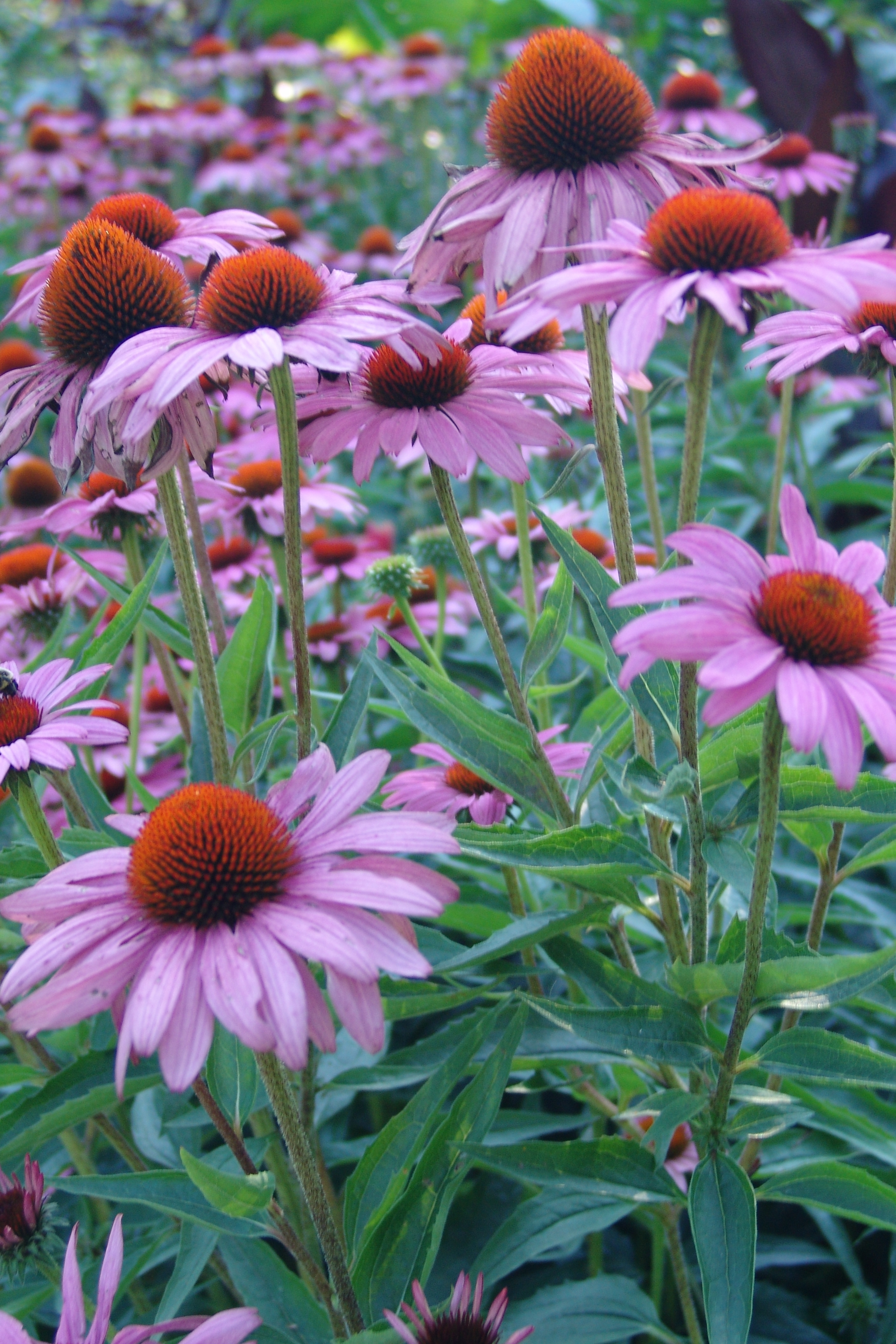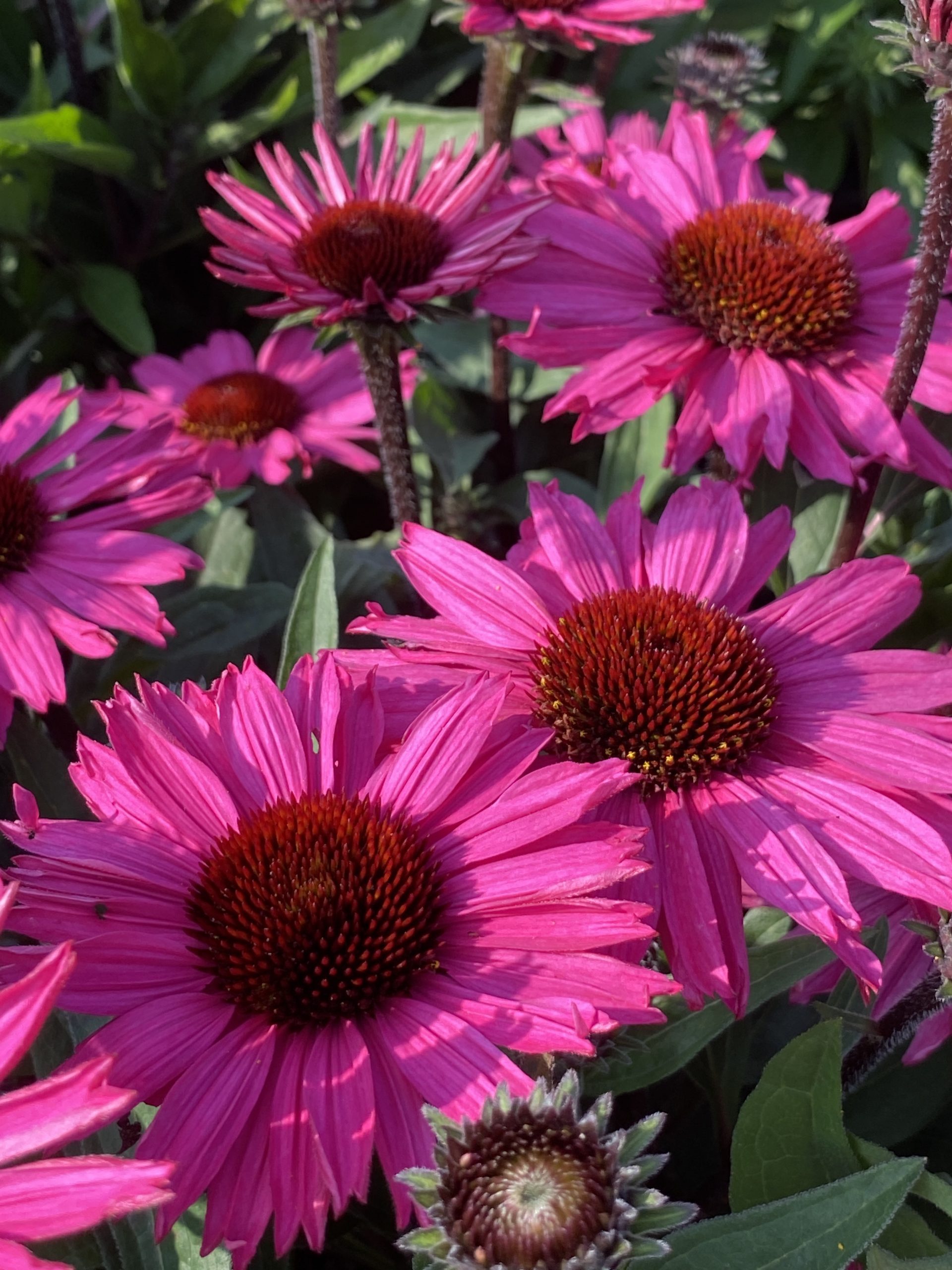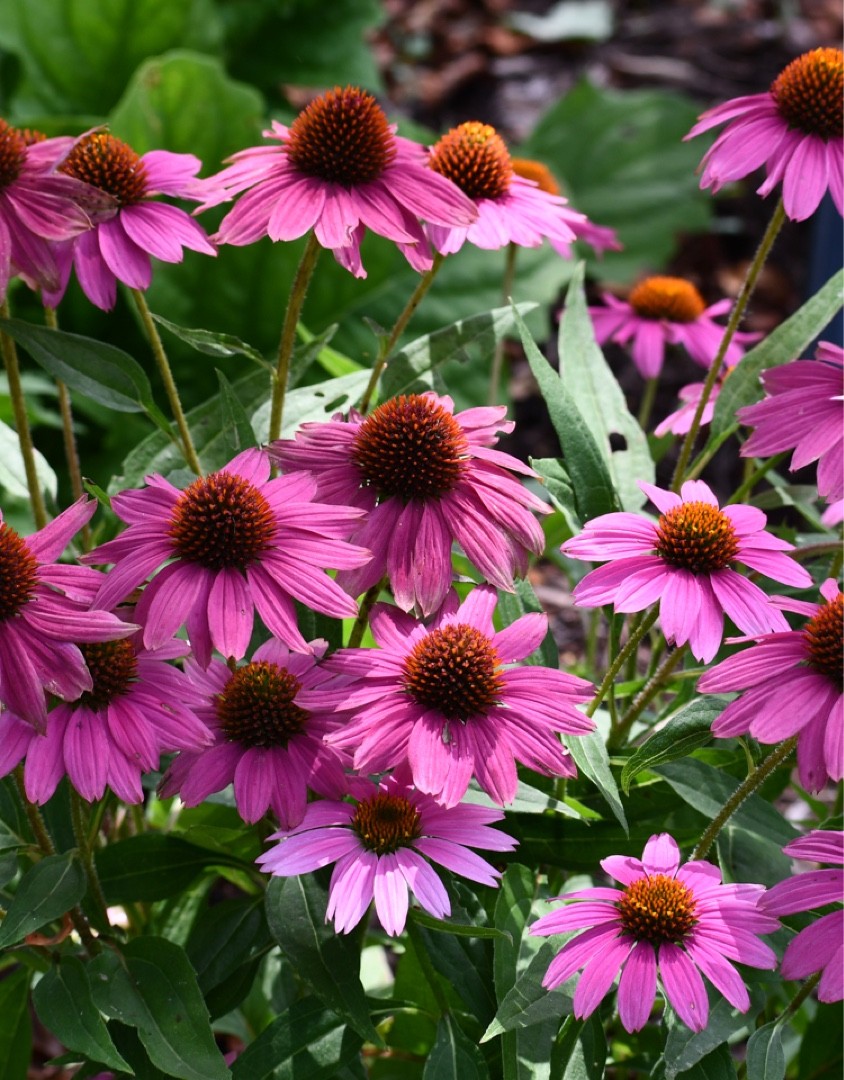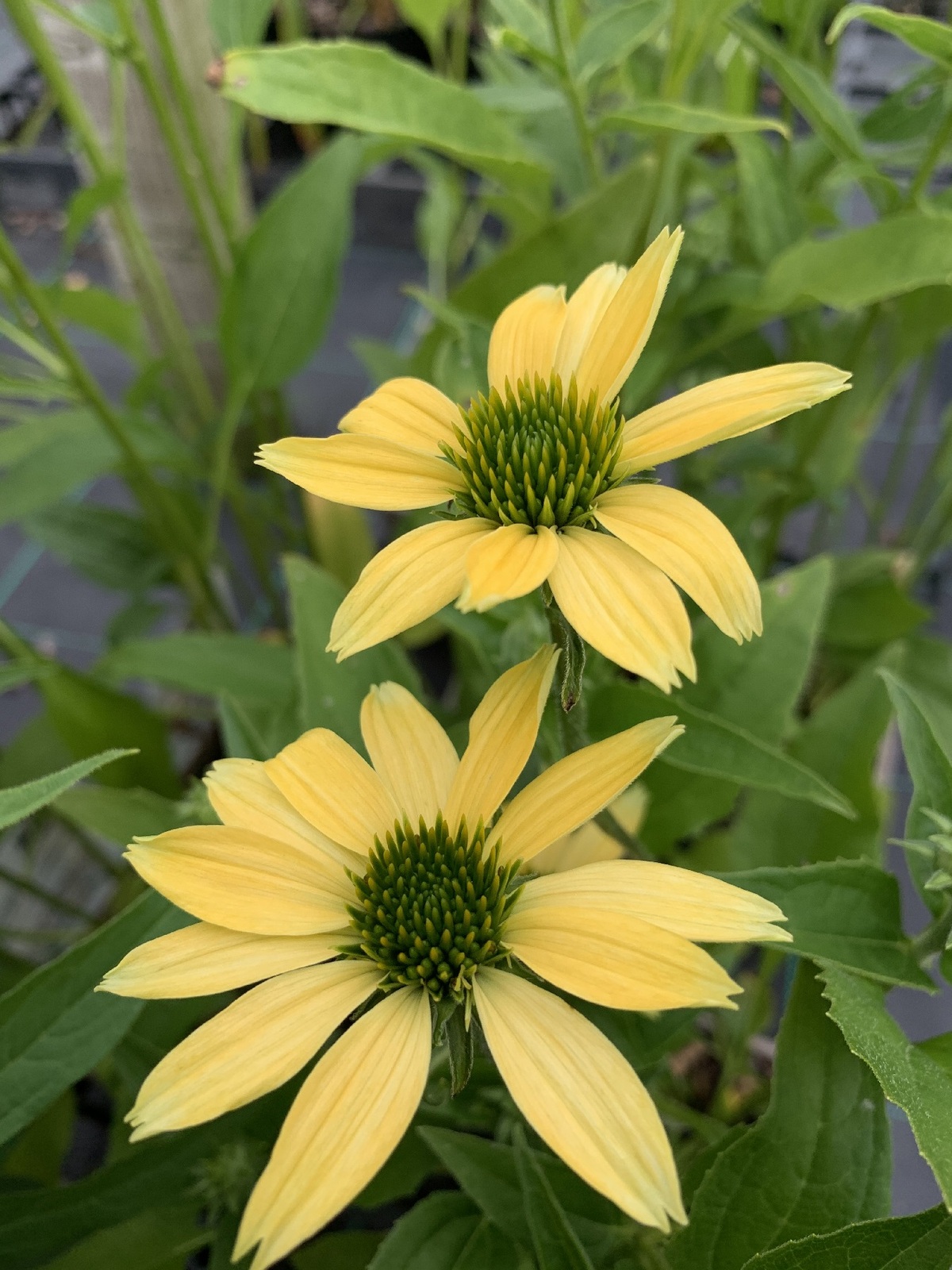Echinacea is one of the most popular herbs in America today. Echinacea is a Native American medicinal plant named for the prickly scales in its large conical seed head, which resembles the spines of an angry hedgehog (echinos is Greek for hedgehog).Archaeologists have found evidence that Native Americans may have used echinacea for more than 400 years to treat infections and wounds, and as a
There are many traditional echinacea benefits and uses, but the strongest scientific evidence available currently supports echinacea use (as echinacea extract or echinacea tea) as a way to help slow the development and reduce the intensity and duration of upper respiratory viral infections, such as the common cold and influenza (flu).
La equinácea, también conocida como echinacea o equinacia, es una planta que proviene del este de América del Norte. Se dice que su uso comenzó cuando los indígenas americanos la descubrieron en el año 1700, convirtiéndose en una medicina tradicional en el siglo XX.
Echinacea is an herb used in alternative medicine for colds, yeast infections, and more. Learn about its benefits, risks, interactions, and how to take it safely.
Définition : qu'est-ce que l'echinacée ? L'échinacée (de son nom latin Echinacea) est une plante originaire d'Amérique du Nord appartenant à la famille des Astéracées et qui comprend 9 espèces et 2 sous-espèces. Trois espèces sont particulièrement réputées pour leurs bienfaits en médecine traditionnelle : Echinacea angustifolia, Echinacea purpurea et Echinacea pallida.
There are many traditional echinacea benefits and uses, but the strongest scientific evidence available currently supports echinacea use (as echinacea extract or echinacea tea) as a way to help slow the development and reduce the intensity and duration of upper respiratory viral infections, such as the common cold and influenza (flu). La equinácea, también conocida como echinacea o equinacia, es una planta que proviene del este de América del Norte. Se dice que su uso comenzó cuando los indígenas americanos la descubrieron en el año 1700, convirtiéndose en una medicina tradicional en el siglo XX. Echinacea is an herb used in alternative medicine for colds, yeast infections, and more. Learn about its benefits, risks, interactions, and how to take it safely.
Définition : qu'est-ce que l'echinacée ? L'échinacée (de son nom latin Echinacea) est une plante originaire d'Amérique du Nord appartenant à la famille des Astéracées et qui comprend 9 espèces et 2 sous-espèces. Trois espèces sont particulièrement réputées pour leurs bienfaits en médecine traditionnelle : Echinacea angustifolia, Echinacea purpurea et Echinacea pallida.
Echinacea is a supplement that may boost the immune system and fight viruses, but its effectiveness is not well-established. Learn about its potential benefits for colds, skin conditions, pain, anxiety, diabetes, and more, as well as its side effects and interactions.
Skin Health & Anti-Aging Properties. Research shows that Echinacea purpurea contains many beneficial constituents for skin health A human clinical trial with 10 patients showed an increase in overall skin hydration and a reduction in skin wrinkles by 10%-14% when using echinacea as either a face cream or gel. The study also showed that echinacea is well tolerated, with none of the
ECHINACEA : ORIGINES. L' Echinacea Purpurea est l'espèce d'Echinacée la plus utilisée en phytothérapie. Il existe plusieurs espèces d'Echinacées, mais elles sont toutes originaires d'Amérique du nord. L'Echinacea Purpurea possède des propriétés médicinales ancestrales, les indiens d'Amérique (Cheyennes, Sious, Comanches…) s'en servaient pour combattre les
L'échinacée est une plante qui fait partie de la pharmacopée traditionnelle d'Amérique du Nord.Elle est utilisée pour traiter les infections respiratoires, soulager la douleur, et guérir les brûlures et les morsures de serpent.Ses bienfaits sont aujourd'hui reconnus dans de nombreux pays occidentaux, pour le traitement de certaines affections.
Echinacée - Bienfaits, Posologie et Contre-indications - Doctonat
Echinacea is a supplement that may boost the immune system and fight viruses, but its effectiveness is not well-established. Learn about its potential benefits for colds, skin conditions, pain, anxiety, diabetes, and more, as well as its side effects and interactions. Skin Health & Anti-Aging Properties. Research shows that Echinacea purpurea contains many beneficial constituents for skin health A human clinical trial with 10 patients showed an increase in overall skin hydration and a reduction in skin wrinkles by 10%-14% when using echinacea as either a face cream or gel. The study also showed that echinacea is well tolerated, with none of the ECHINACEA : ORIGINES.
L' Echinacea Purpurea est l'espèce d'Echinacée la plus utilisée en phytothérapie. Il existe plusieurs espèces d'Echinacées, mais elles sont toutes originaires d'Amérique du nord. L'Echinacea Purpurea possède des propriétés médicinales ancestrales, les indiens d'Amérique (Cheyennes, Sious, Comanches…) s'en servaient pour combattre les L'échinacée est une plante qui fait partie de la pharmacopée traditionnelle d'Amérique du Nord.Elle est utilisée pour traiter les infections respiratoires, soulager la douleur, et guérir les brûlures et les morsures de serpent.Ses bienfaits sont aujourd'hui reconnus dans de nombreux pays occidentaux, pour le traitement de certaines affections.
ECHINACEA (purpurea o angustifolia) Beneficios y propiedades de la equinácea? Propiedades medicinales? Efectos secundarios?dosis?donde comprar echinacea?
Health Benefits of Echinacea. Let's explore some of the many health benefits that this herb can provide! Boosted Immune System . Perhaps the most common usage of echinacea relates to its impact on the immune system. This is because the chemical constituents within this herbal plant can directly affect the chemical processes of the immune system.
Echinacea is a group of flowering plants in the daisy family. It may support the immune system and is a common ingredient in cold remedies. However, research into the benefits of echinacea is limited.
Learn how echinacea, an herbal plant, may support your immune system, fight infections, and improve your skin. Find out the possible side effects, how to take it, and when to consult your doctor.
Echinacea: Health Benefits, Uses, Risks & How To Take It
ECHINACEA (purpurea o angustifolia) Beneficios y propiedades de la equinácea? Propiedades medicinales? Efectos secundarios?dosis?donde comprar echinacea? Health Benefits of Echinacea. Let's explore some of the many health benefits that this herb can provide!
Boosted Immune System . Perhaps the most common usage of echinacea relates to its impact on the immune system. This is because the chemical constituents within this herbal plant can directly affect the chemical processes of the immune system. Echinacea is a group of flowering plants in the daisy family. It may support the immune system and is a common ingredient in cold remedies.
However, research into the benefits of echinacea is limited. Learn how echinacea, an herbal plant, may support your immune system, fight infections, and improve your skin. Find out the possible side effects, how to take it, and when to consult your doctor.
ما هو القنفذية او الاكيناسيا . تعد القنفذية أو ما تعرف الإكيناسيا أوالإخناسيا والمعروفة بزهرة القمح من النباتات الشائع استخدامها في الطب التقليدي القديم، وهي عبارة عن نبتة صغيرة لا يتجاوز طولها 30 سم ولها سيقان قوية
Echinacea is a plant that some people use to boost their immune system, but it has not been proven to prevent or treat colds or other illnesses. Learn about the types, doses and side effects of echinacea, and what other ways to fight colds and stay healthy.
Echinacea is a plant used as medicine for colds, infections, and other purposes. Learn about its benefits, risks, precautions, interactions, and dosing from WebMD.
For dehydrated powders (including encapsulated echinacea) the species of purpuera tends to be used and oral doses are taken upwards of 300mg thrice a day (900mg daily) and 500mg thrice daily (1,500mg daily) Tinctures of an ethanolic extract of the aerial parts (leaves and stems) appears to be used in the concentration of 2.5mL thrice a day or up to 10mL daily.
Echinacea benefits, dosage, and side effects - Examine
ما هو القنفذية او الاكيناسيا . تعد القنفذية أو ما تعرف الإكيناسيا أوالإخناسيا والمعروفة بزهرة القمح من النباتات الشائع استخدامها في الطب التقليدي القديم، وهي عبارة عن نبتة صغيرة لا يتجاوز طولها 30 سم ولها سيقان قوية Echinacea is a plant that some people use to boost their immune system, but it has not been proven to prevent or treat colds or other illnesses. Learn about the types, doses and side effects of echinacea, and what other ways to fight colds and stay healthy. Echinacea is a plant used as medicine for colds, infections, and other purposes. Learn about its benefits, risks, precautions, interactions, and dosing from WebMD.
For dehydrated powders (including encapsulated echinacea) the species of purpuera tends to be used and oral doses are taken upwards of 300mg thrice a day (900mg daily) and 500mg thrice daily (1,500mg daily) Tinctures of an ethanolic extract of the aerial parts (leaves and stems) appears to be used in the concentration of 2.5mL thrice a day or up to 10mL daily.
La equinácea (Echinacea angustifolia o Echinacea purpurea) es probablemente la planta medicinal norteamericana más conocida y empleada en fitoterapia occidental.Ha merecido el acuerdo unánime de los expertos en considerarla uno de los remedios herbarios más efectivos para fortalecer el sistema inmunitario.Hoy día se utiliza para aliviar distintas afecciones respiratorias como catarros
What is Echinacea. Echinacea is one of the world's most popular herbal supplements which is especially useful during the cold or flu season. Also known as Purple Coneflower, it has been used for centuries by native Americans.Today, several species of the plant are used to make medicine with excellent immune boosting properties.
Learn how echinacea, a wild herb from North America, can help with colds, cuts and immune system. Find out the dosage, side-effects and who should avoid it.
Learn about echinacea, a plant related to sunflowers and daisies, that may stimulate the immune system and reduce cold symptoms. Find out how echinacea is regulated, what are the possible side effects and interactions, and what research supports its use.
Echinacea: Usefulness and Safety | NCCIH - National Center for
La equinácea (Echinacea angustifolia o Echinacea purpurea) es probablemente la planta medicinal norteamericana más conocida y empleada en fitoterapia occidental.Ha merecido el acuerdo unánime de los expertos en considerarla uno de los remedios herbarios más efectivos para fortalecer el sistema inmunitario.Hoy día se utiliza para aliviar distintas afecciones respiratorias como catarros What is Echinacea. Echinacea is one of the world's most popular herbal supplements which is especially useful during the cold or flu season. Also known as Purple Coneflower, it has been used for centuries by native Americans.Today, several species of the plant are used to make medicine with excellent immune boosting properties. Learn how echinacea, a wild herb from North America, can help with colds, cuts and immune system. Find out the dosage, side-effects and who should avoid it.
Learn about echinacea, a plant related to sunflowers and daisies, that may stimulate the immune system and reduce cold symptoms. Find out how echinacea is regulated, what are the possible side effects and interactions, and what research supports its use.
Echinacea is a genus of ten species of flowering plants in the daisy family, native to North America. They are commonly called coneflowers and have showy heads of composite flowers, some of which are used in traditional medicine.
Echinacea is a group of plants with antioxidant and anti-inflammatory properties that may support immunity, lower blood sugar, and reduce anxiety. Learn about the different forms, dosages, and potential side effects of echinacea supplements.
Echinacea purpurea, E. angustifolia, and E. pallida are commonly used to prevent or treat the common cold and influenza.
Echinacea is a herb that may boost your immune system, fight infections, treat eczema, and reduce inflammation. Learn about its potential benefits, side effects, and how to use it for colds, COVID-19, and more.
Echinacea: Health Benefits, Safety, Dosage - WebMD
Echinacea is a genus of ten species of flowering plants in the daisy family, native to North America. They are commonly called coneflowers and have showy heads of composite flowers, some of which are used in traditional medicine. Echinacea is a group of plants with antioxidant and anti-inflammatory properties that may support immunity, lower blood sugar, and reduce anxiety. Learn about the different forms, dosages, and potential side effects of echinacea supplements. Echinacea purpurea, E.
angustifolia, and E. pallida are commonly used to prevent or treat the common cold and influenza. Echinacea is a herb that may boost your immune system, fight infections, treat eczema, and reduce inflammation. Learn about its potential benefits, side effects, and how to use it for colds, COVID-19, and more.




